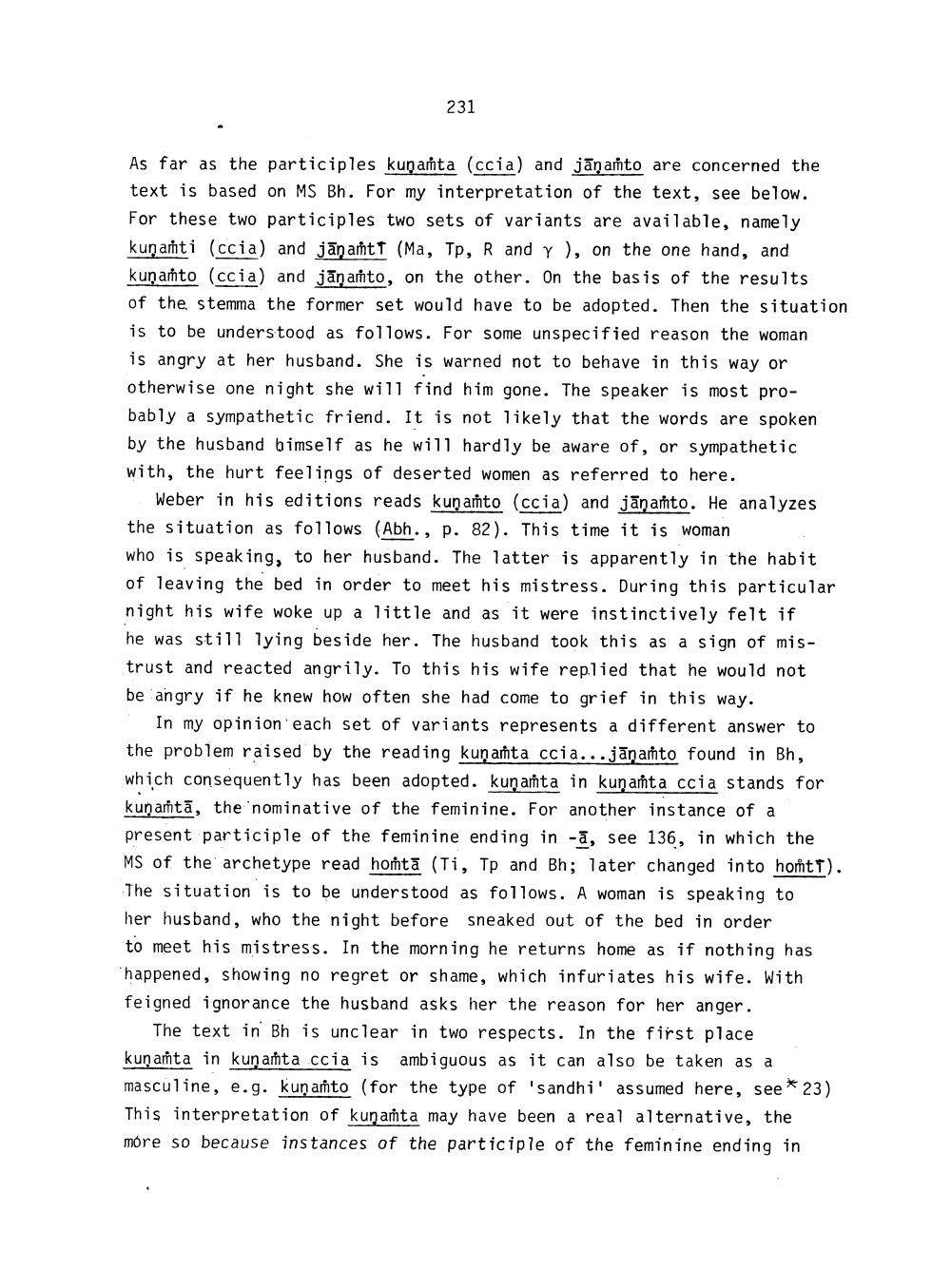________________
231
As far as the participles kuņamta (ccia) and jāņaộto are concerned the text is based on MS Bh. For my interpretation of the text, see below. For these two participles two sets of variants are available, namely kun anti (ccia) and jānaṁtt (Ma, Tp, R and y), on the one hand, and kuņaito (ccia) and jānamto, on the other. On the basis of the results of the stemma the former set would have to be adopted. Then the situation is to be understood as follows. For some unspecified reason the woman is angry at her husband. She is warned not to behave in this way or otherwise one night she will find him gone. The speaker is most probably a sympathetic friend. It is not likely that the words are spoken by the husband bimself as he will hardly be aware of, or sympathetic with, the hurt feelings of deserted women as referred to here.
Weber in his editions reads kuņaṁto (ccia) and jāņaṁto. He analyzes the situation as follows (Abh., p. 82). This time it is woman who is speaking, to her husband. The latter is apparently in the habit of leaving the bed in order to meet his mistress. During this particular night his wife woke up a little and as it were instinctively felt if he was still lying beside her. The husband took this as a sign of mistrust and reacted angrily. To this his wife replied that he would not be angry if he knew how often she had come to grief in this way.
In my opinion each set of variants represents a different answer to the problem raised by the reading kuņaṁta ccia...jāņaṁto found in Bh, which consequently has been adopted. kuņamta in kuņaṁta ccia stands for kuņastā, the nominative of the feminine. For another instance of a present participle of the feminine ending in -a, see 136, in which the MS of the archetype read homtā (Ti, Tp and Bh; later changed into homtT). The situation is to be understood as follows. A woman is speaking to her husband, who the night before sneaked out of the bed in order to meet his mistress. In the morning he returns home as if nothing has happened, showing no regret or shame, which infuriates his wife. With feigned ignorance the husband asks her the reason for her anger.
The text in Bh is unclear in two respects. In the first place kunata in kuņaṁta ccia is ambiguous as it can also be taken as a masculine, e.g. kunaṁto (for the type of 'sandhi' assumed here, see* 23) This interpretation of kunaṁta may have been a real alternative, the more so because instances of the participle of the feminine ending in




